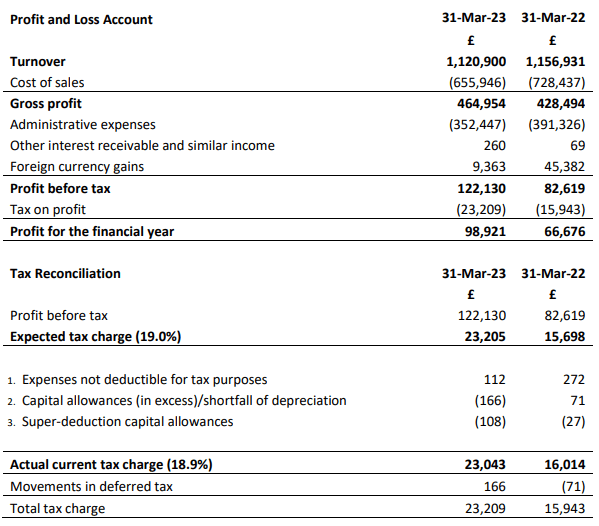This statement of Fair Tax compliance was compiled in partnership with the Fair Tax Foundation (“FTF”) and certifies that Atlas Translations Limited (“the Company”) meets the standards and requirements of the FTF’s Solely UK-based Business Standard for the Fair Tax Mark certification.
Our Tax Policy
The Company is committed to paying all the taxes that we owe in accordance with the spirit of all tax laws that apply to our operations. We believe that paying our taxes in this way is the clearest indication we can give of being responsible participants in society. We will fulfil our commitment to paying the appropriate taxes that we owe by seeking to pay the right amount of tax, in the right place, and at the right time. We aim to do this by ensuring that we report our tax affairs in ways that reflect the economic reality of the transactions that we undertake during the course of our trade.
We will not seek to use those options made available in tax law, or the allowances and reliefs that it provides, in ways that are contrary to the spirit of the law. Nor will we undertake specific transactions with the sole or main aim of securing tax advantages that would otherwise not be available to us based on the reality of the trade that we undertake. The Company will never undertake transactions that would require notification to HM Revenue & Customs under the Disclosure of Tax Avoidance Schemes Regulations or participate in any arrangement to which it might be reasonably anticipated that the UK’s General Anti-Abuse Rule might apply.
We believe tax havens undermine the UK’s tax system. As a result, whilst we may trade with
customers and suppliers genuinely located in places considered to be tax havens, we will not make use of those places to secure a tax advantage, and nor will we take advantage of the secrecy that many such jurisdictions provide for transactions recorded within them. Our accounts will be prepared in compliance with this policy and will seek to provide all the information that users, including HM Revenue & Customs, might need to properly appraise our tax position.
Our Company Information
Our registered office and trading address is:
Censeo House, 6 St. Peters Street, St. Albans, Hertfordshire, England AL1 3LF.
The Company is wholly owned and controlled by its sole director, Clare Suttie.
Our Tax Disclosures
Our profit before tax for the year ended 31 March 2023 was £122,130 (2022: £82,619). The expected tax charge on this profit at the UK headline rate of 19% would be £23,205 (2022: £15,698). Our actual current tax charge for the year ended 31 March 2023 was £23,043 (2022: £16,014) at a rate of 18.9% (2022: 19.4%); and the reasons for this being lower (2022: more) than expected are explained below in the following tax reconciliation and accompanying footnotes:

As at 31 March 2023, the Company had a deferred tax liability of £536 (2022: £370) on its Balance Sheet, after debiting £166 (2022: crediting £71) to profit and loss.
The Company’s deferred tax liability is attributable to temporary timing differences between the net book value of qualifying tangible assets in the accounts and their equivalent tax written down values (see footnote 2). The provision for these temporary timing differences will unfold in annual instalments over the useful economic lives of the assets to which it relates.
- Expenses not deductible for tax purposes – Some business expenses, although entirely appropriate for inclusion in the accounts, are not allowed as a deduction against taxable income when calculating the tax liability. An example of such expenses would be client entertaining.
- Capital allowances (in excess)/shortfall of depreciation – The accounting treatment of fixed assets differs from the tax treatment. For
accounting purposes, fixed assets are depreciated over their useful economic lives. For tax purposes, there are specific rules to what
can, or should, be claimed. The differences between these treatments creates a tax adjustment that will unwind over the useful
economic lives of the assets. For the year ended 31 March 2023, the tax treatment of our fixed assets was more (2022: less) favourable
than how we had accounted for it. - Super-deduction capital allowances – From 1 April 2021 until 31 March 2023, UK companies investing in qualifying new plant and
machinery assets can claim a 130% super-deduction capital allowance on qualifying plant assets. This extra 30% capital allowance
creates a permanent difference above the actual cost of the asset, which will not be resolved by accumulated depreciation and capital
allowances claimed equalling one another over the asset’s life (as explained in footnote 2). This extra 30% tax saving, which is a
permanent difference and not a timing difference, has therefore been presented separately.
You can view and download our latest Fair Tax Mark statement here.
